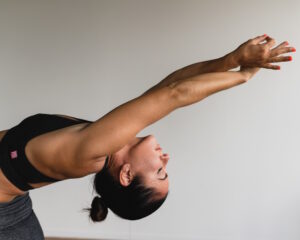
As an athlete, it is crucial to prioritize performance enhancement, injury prevention, and efficient recovery from exercise. Pilates, with its focus on core strength, flexibility, and body awareness, offers numerous benefits to athletes looking to optimize their athletic performance and reduce the risk of injuries. In this article, we will explore how Pilates prevents injuries, the benefits it provides for athletes, the aspects that improve athletic performance and aid in recovery from exercise, and the role of Pilates in rehabilitation.
How does Pilates prevent injuries?
Pilates is an excellent tool for injury prevention due to the following reasons:
1. Core strength and stability: Pilates places a strong emphasis on strengthening the deep core muscles, including the abdominals, back, and pelvic floor. A strong core provides stability and supports proper alignment, reducing the risk of injury during athletic movements.
2. Proper alignment and body awareness: Pilates exercises promote proper body alignment, helping athletes maintain optimal posture and movement mechanics. Increased body awareness enables athletes to identify and correct imbalances or compensatory patterns that may lead to injury.
3. Improved flexibility and mobility: Pilates incorporates stretches and exercises that enhance flexibility and joint mobility, reducing the likelihood of muscle imbalances, strains, and overuse injuries.
How is Pilates beneficial for athletes?
Pilates offers several benefits that directly impact an athlete’s performance:
1. Core strength and power transfer: Pilates strengthens the deep core muscles, which play a crucial role in generating power and transferring forces efficiently during athletic movements. A strong core enhances stability, balance, and overall body control.
2. Improved flexibility and range of motion: Pilates exercises promote flexibility and joint mobility, allowing athletes to move more freely and with a greater range of motion. This can enhance athletic performance, particularly in sports that require agility, speed, and dynamic movements.
3. Enhanced body awareness and control: Pilates emphasizes body awareness, precision, and control of movement. Athletes who practice Pilates develop a heightened sense of body awareness, allowing them to execute movements with greater precision, efficiency, and control.
What improves athletic performance, prevents injuries, and helps with recovery from exercise?
To enhance athletic performance, prevent injuries, and aid in recovery from exercise, the following aspects are essential:
1. Strength and power: Pilates exercises target the major muscle groups, building overall strength and power. Strengthening the muscles used in specific sports movements can improve performance and reduce the risk of injuries.
2. Flexibility and mobility: Pilates incorporates stretches and exercises that promote flexibility and joint mobility, ensuring adequate range of motion for athletic movements. Improved flexibility allows for better performance and reduces the risk of muscle strains and imbalances.
3. Balance and stability: Pilates exercises challenge balance and stability, which are vital for athletes to maintain control and prevent falls or injuries during dynamic movements.
What is the use of Pilates in rehabilitation?
Pilates has proven to be highly effective in rehabilitation for athletes recovering from injuries. Its key benefits include:
1. Controlled movement and low impact: Pilates exercises can be tailored to meet the specific needs and limitations of athletes during their rehabilitation process. The controlled movements and low impact nature of Pilates make it suitable for gradual and safe progression in rebuilding strength and mobility.
2. Targeted muscle activation and strengthening: Pilates allows for targeted muscle activation, aiding in strengthening weak or injured areas while ensuring proper alignment and balanced muscle development.
3. Core and postural stability: Pilates focuses on core strength and postural alignment, which are essential for restoring optimal function and preventing re-injury.
In summary, Pilates exercises offer athletes a comprehensive approach to enhancing performance, preventing injuries, and supporting rehabilitation. With its emphasis on core strength, flexibility, body awareness, and control, Pilates provides athletes with the tools to optimize their athletic abilities, reduce the risk of injuries, and promote efficient recovery from exercise.